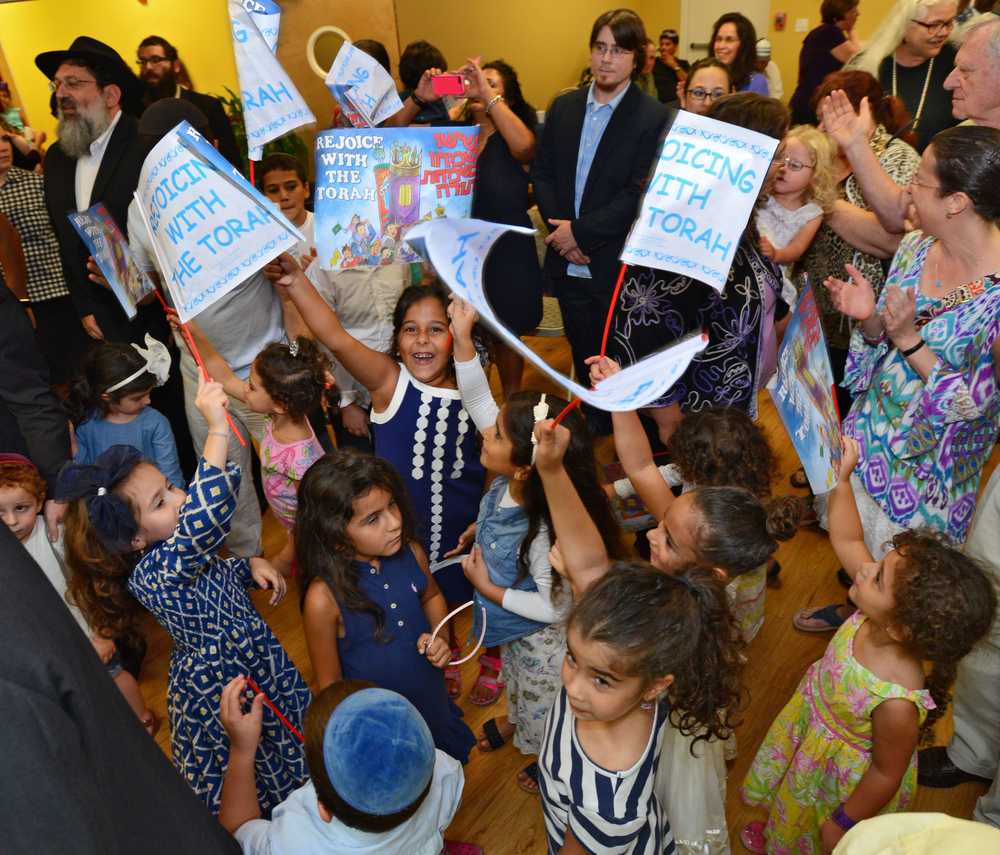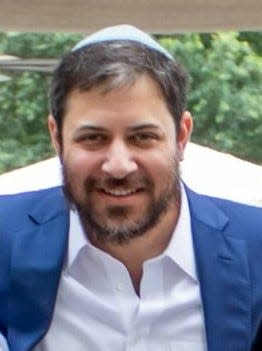From ‘Oy’ to joy: How Jacksonville residents can transform the High Holiday experience

Whenever you think of “New Year,” images of fireworks, party hats and champagne glasses may often come to mind. On Sept. 15, Jewish communities everywhere kicked off the Jewish New Year, or Rosh Hashanah; yet our New Year’s celebration is not quite what you might have found elsewhere.
Rosh Hashanah is referred to as the "Day of Judgment" and is a day of prayer, lengthy sermons and hearing the blowing of a ram’s horn — not exactly my idea of a party, either.
Yom Kippur, which fell on Sept. 25, is also a day of fasting and repentance. These are solemn, serious days filled with regret, remorse and (hopefully) resolutions to improve. To be sure, these are indeed inspiring holidays that many find deep meaning in, but not the usual idea of holiday celebrations.
For a large percentage of Jewish people, Rosh Hashanah and Yom Kippur represent the two lone annual pilgrimages to the synagogue. While these holidays are introspective and perhaps solemn, they are only the beginning of the High Holidays — a start to a spiritual journey that has a joyful conclusion.
The High Holidays are followed almost immediately by two festive holidays. Less than a week after Yom Kippur concludes, we celebrate the lesser-known festivals of Sukkot and Simchas Torah. Sukkot, known as "the time of our joy," is a holiday where we eat, sing and gather in outdoor huts called Sukkahs.
Simchas Torah, on Oct. 7, is a holiday whose name literally translates to “rejoicing in the Torah,” and celebrates the gift of our holy book through song and dance.
The order of these holidays represents a profound theme that appears throughout Jewish tradition and perhaps the life cycle in general — that challenge and introspection are often followed by light and rejoicing. During the High Holiday season, we first cleanse ourselves on Rosh Hashanah and Yom Kippur through fasting, self-reflection and repentance.
Once completed, the stage is set for the exuberant festivals of Sukkot and Simchas Torah, where we enjoy the fruits of our spiritual labor. Nothing is more exciting than feasting with friends and family in the Sukkah, feeling wrapped in God's warm and loving embrace.
Additionally, Simchas Torah’s ritual of dancing with the Torah, is a sublime experience. It's a grand narrative, a journey encompassing both the internal and external joys of life.
Letters: Liberal or conservative, Jacksonville communities still need daily newspaper
Life itself mirrors this delicate blend of joy and solemnity, of feasting and fasting. When we encounter moments of sorrow and challenge, we must consistently follow them up with light and rejoicing. King Solomon's wisdom, found in the book of Ecclesiastes, underscores this duality: "For everything, there is a season — A time for weeping, and a time for laughing. A time for wailing, and a time for dancing." Both extremes are valid expressions of our humanity.
So, for those who find Rosh Hashanah and Yom Kippur challenging, I offer this advice: Do not stop halfway through the journey. Leaving the game in the middle means missing out on the most rewarding parts. Embrace the solemnity of the High Holidays as a means to cleanse your soul and prepare for the joyous celebrations that follow.
Understand that these days of reflection are not an endpoint, but a path to renewal and connection.
Rabbi Novack: Day of mourning reminds us 'community’ comes from unity, not uniformity
I invite you to join a Sukkah and experience this joy for yourself. Find a Sukkah near you and share a meal, dance, and sing with the community. Come experience the pure joy of dancing with God’s holy book on Oct. 7. Participate in the entire Hebrew month of Tishrei, and discover a fusion of emotions that leads to a spiritually enriched, sweet new year.
Jewish tradition encompasses the full spectrum of human emotion, but at its core is joy and celebration. The Rebbe, the most influential Jewish leader in modern history, taught that whenever we encounter difficulty or sadness in life, we must increase in our activities which bring joy. By participating in the journey, from introspection to celebration, we can reconnect with our vibrant Jewish spirit.
Let's embark on this new year as a fresh beginning, alive with hope, joy, and meaningful connection. Balancing reflection and celebration, we discover the beauty and richness of our heritage.

Rabbi Shmuli Novack is the director of Jacksonville’s Chabad of Southside and Chabad of UNF. For more information, visit SouthsideChabad.com/.
This guest column is the opinion of the author and does not necessarily represent the views of the Times-Union. We welcome a diversity of opinions.
This article originally appeared on Florida Times-Union: Balancing reflection, celebration at the heart of Jewish High Holidays

